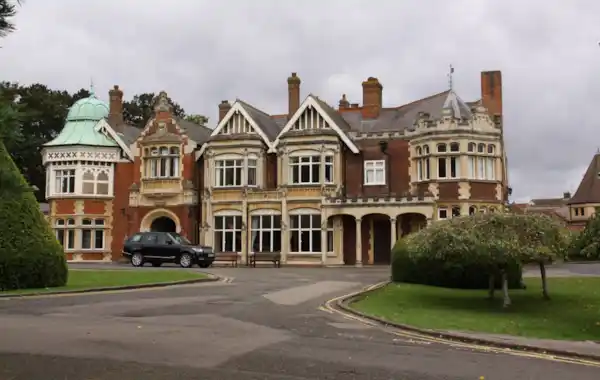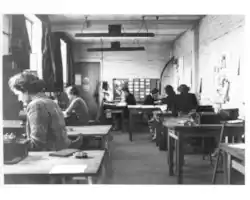Bletchley Park, the former top secret codebreaking station, has launched a new oral history project in a bid to discover what life was like for those who lived near the base during World War II. Did you or your family live nearby?
Bletchley Park, the former top secret codebreaking station, has launched a new oral history project in a bid to discover what life was like for those who lived near the base during the height of its activities in World War II.
Whether you lived close to the park near Milton Keynes in Buckinghamshire and wondered what was happening there, had a Bletchley Park worker billeted in your home, or have stories about you and your family’s own contribution to the war effort, the Bletchley Park museum team would love to hear from you to understand the wider impact that the war and the top secret activities at the site had on the local community.
Bletchley Park’s Oral History Officer Jonathan Byrne explains: ‘Over the past seven years we have interviewed over 400 veterans of Bletchley Park’s wartime work and have gathered vital material for our exhibitions and publications. However, we know much less about the community that supported and was affected by the secret work here.
‘Many local families had Bletchley Park workers living with them, and local men and women provided essential services like cooking, cleaning and driving. Others may have been friends with someone who worked at Bletchley Park, or may just have wondered what this strange new place was all about, though, with the country at war, they knew not to ask about it.'
Cllr Pete Marland, Leader of Milton Keynes Council, which is supporting the project, said: ‘We are really pleased to support this important heritage project to identify the local Bletchley residents’ contributions to the war effort and the social impact it had on families. Capturing that social history and heritage helps Bletchley Park engaging with its localities and to tell those fascinating stories that otherwise would be lost forever.’
The workforce at Bletchley Park peaked in 1945 when almost 10,000 people worked in shifts around the clock, many billeted in accommodation around Buckinghamshire and its surrounding counties. BP personnel were also working in top secret listening posts based around the UK and overseas.
Many Bletchley Park veterans have shared their stories of living with local families, like Ann Mitchell, née Williamson, a civilian who worked in the Hut 6 machine room, who recalled: ‘There was a club in Wolverton, which I used a lot, where you could buy coffee, tea, cakes and snacks, and I met a lot of my Oxford friends there and other Bletchley Park people living in the area. Old fashioned single decker buses picked us up for work at fixed places near our digs. I once got lost in the pitch black, no street lights, but luckily a local person walked me to my bus stop.’
Bletchley Park would love to hear from anyone with a story to tell about the wartime local community and interview them, wherever they may be living now. Please contact Jonathan Byrne on 01908 272685 or at [email protected] for more information.
You may also be interested in these stories:
• Codebreaking veterans return to Bletchley Park
• Launch of RAF Stories: a free digital resource for sharing RAF family stories and connections
Images: Machine room Hut 6 photograph ©Crown copyright, produced by kind permission, Director, GCHQ; Bletchley Park photograph from Pixabay.









.jpg)